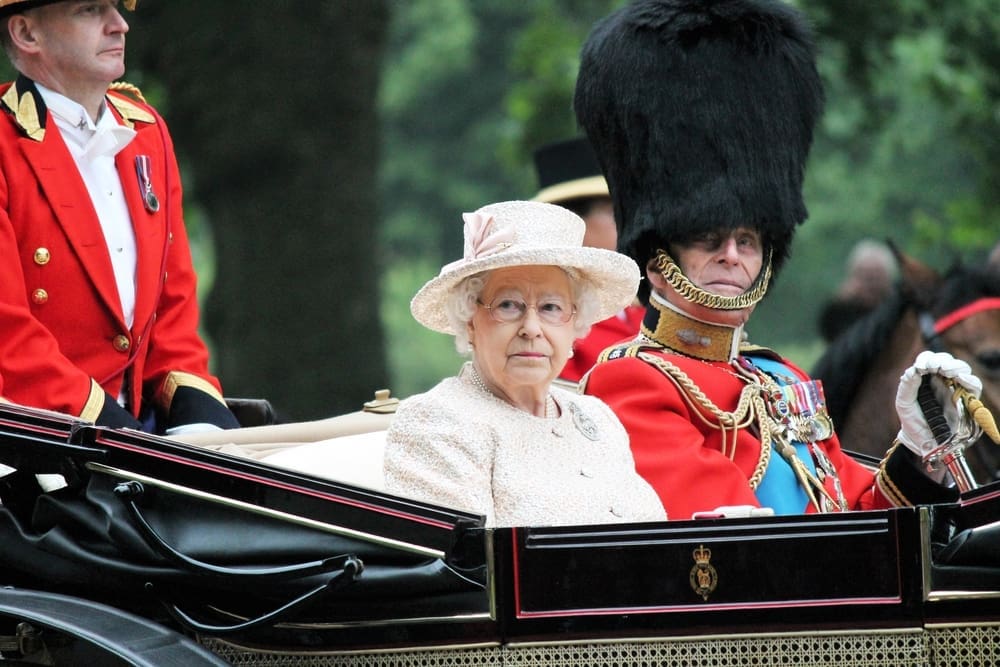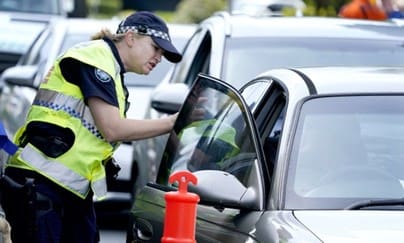
According to the Australian Institute of Health and Welfare, almost 2 million Australians over the age of 15 had been sexually assaulted one or more times. Those affected by sexual assault are prone to emotional stress, psychological trauma and feelings of disconnection from daily life.
In light of recent events like Sexual Assault Awareness Month and the recent trial of Saxon Mullins’ attacker, the New South Wales Attorney General has announced a reform to previous NSW consent laws. NSW is now endorsing a new affirmative consent law.
What does affirmative consent entail?
For affirmative consent to be given, consent must be actively communicated and actively sought. Those providing and receiving consent would be encouraged to follow a ‘yes means yes’ mentality, rather than focusing on the existence or absence of a 'no.' New legislation would require a person seeking sexual intercourse to obtain a clear, expressed and active agreement before engaging in a sexual practice.
This is a win for survivors as it shifts the emphasis away from the victim’s actions and onto those of the accused.
The affirmative consent law has been at the forefront of Tasmania’s action against sexual assault for the past two decades without any controversy. However, Victoria does not require an accused person to provide any evidence to show the other party was consenting. Rather, the Victorian courts will look to the accused person’s perception of the victim’s conduct, such as whether the victim was intoxicated, wearing revealing clothing or not offering enough resistance to the sexual advances. If a perpetrator did take steps to ascertain consent, they have the right to use this as their defense.
NSW plans to eradicate these potential problems by adopting Affirmative consent laws and making consent steps mandatory. Thus, the NSW provision will provide protection to victim survivors while undertaking their fight for justice.
This does not, however, reverse the onus of proof. This means people accused of sexual assault still have the right to the presumption of innocence.
This NSW reform has been advantageous for survivors of sexual assault and provides more awareness regarding saying YES when providing consent.
If you are a victim of sexual assault and require support, there are several services you can reach out to. These include:
- National Sexual Assault Support: 1800RESPECT
- Blue Knot Foundation: 1300 657 380
- Bravehearts: 1800 272 831
If you have any questions or concerns about these reforms, or you would like to discuss a legal matter further, please do not hesitate to contact us on 8917 8700.
Discussions about legal rights often concentrate on adults. However, the law also protects the rights of children in significant ways. It is important that you and your children are aware of their rights at law to ensure that these rights are respected at all times.
- Right to be Heard
Children have a right to be heard in all matters affecting them. In legal proceedings, child representatives must act on the child’s instructions unless the child is not competent to give instructions.
- Schooling
It is unlawful for educational authorities, whether private or public, to discriminate against students with disabilities. However, there is an exception to this rule if the services or facilities required by a student with a disability impose an ‘unjustifiable hardship’ on that educational authority. Enlivening this condition requires exceptional or dangerous conduct, such as protecting staff and other students from violent behaviour that may arise from a student’s disability.
Students also have a right to an education free from bullying. Every government school in New South Wales must have an Anti-Bullying Plan and schools have a responsibility to implement best practice programs to tackle bullying of all kinds, including cyberbullying.
Furthermore, public schools in New South Wales must follow the Department of Education’s policy for suspending or expelling a student. Students are entitled to procedural fairness in these decisions and possess a right to appeal. The suspension and expulsion policies of private schools must also abide by principles of procedural fairness.
Finally, schoolchildren’s privacy rights differ to those of adults, as the Department of Education’s Privacy Code of Practice allows the sharing of children’s personal information between schools, parents, guardians and caregivers in specified circumstances.
- Medical Treatment
At common law, children can consent to medical treatment if they fully understand the proposed treatment. Parents cannot invalidate their child’s consent, but a Court may. If a child is not competent to consent, parents may give consent unless it is a special medical procedure that requires Court authorisation.
If you have any questions or concerns about your children’s rights, call us on 8917 8700
There is no doubt that the pandemic has been a struggle for Australian families. Whether that struggle be financial or emotional, these difficult times have forced many couples to question where their relationships stand.
Any person questioning their marriage will be faced with the defining question; Do you try to work through the problem? Or do you file for a divorce?
Situation A: I want to work on my relationship, but I don’t know how
Counselling can be effective at repairing even the most broken of relationships. Studies have shown that couples therapy is effective at restoring relationships in 75 percent of cases.
If engaging a counsellor or psychologist is out of your budget, consider developing more open communication with your partner.
Situation B: I want a divorce, but I do not know how to proceed
If you are currently in an abusive relationship or are experiencing domestic violence, there are many hotlines available to speak to someone in confidence which include:
- White Ribbon Australia: 1800 737 732
- NSW Domestic Violence Line: 1800 656 463
- Lifeline Australia: 13 11 14
If you are not in immediate danger and are considering getting a divorce or separating from your partner, contact our offices for a free consultation.
If you are currently thinking about divorce, or wish to discuss a legal matter further, please do not hesitate to contact us on 8917 8700.
 The Morrison Government's rejection of a plan to extend super to paid parental leave payments will have major consequences for Australia's newest mothers.
The Morrison Government's rejection of a plan to extend super to paid parental leave payments will have major consequences for Australia's newest mothers.
Despite speculation of reform that would require employers to pay superannuation entitlements on all paid parental leave, the hopes of working mums were crushed with the announcement of the federal budget on 11 May 2021. Proposed changes included calling for employers to provide super or pension credits to those foregoing earning income to undertake caring responsibilities. Under this plan, the federal government would be responsible for converting carer’s credits into superannuation payments. The scheme was widely praised as a positive step towards closing the gender gap in superannuation balances by ensuring that carers (who are predominantly women) are not penalised for the essential caring services that they provide.
This budget's failure to include these changes could future mums up to $13,500 over a life time.
Despite its flaws, this budget's renewed focus on women and low income earners has shocked and delighted many. The Australian Government announced it will expand super guarantee coverage for low income workers by removing the $450 per month threshold for eligibility. With 3 billion dollars allocated to women, 2021’s budget is unrecognisable from last year’s focus on construction and roads.
If you would like to learn more about the 2021-2022 budget, you feel your employer is not honouring your rights, or you would like to discuss a legal matter, please do not hesitate to contact us on 8917 8700.
 After an unprecedented year of violence, brutality and conflict, Black Lives Matter activists have finally seen justice. Earlier today, Derek Chauvin was found guilty of murder after refusing to heed George Floyd’s plea, “I can’t breathe.”
After an unprecedented year of violence, brutality and conflict, Black Lives Matter activists have finally seen justice. Earlier today, Derek Chauvin was found guilty of murder after refusing to heed George Floyd’s plea, “I can’t breathe.”
Chauvin, who joined the Minneapolis Police Department in 2001, has received a guilty verdict for all three of the charges against him; second-degree unintentional murder, third-degree murder, and second-degree manslaughter.
Combined, these charges could see the former police officer in prison for 29 - 75 years. Prosecutors are seeking a sentence above the guideline range due to a variety of aggravated factors, including Floyd’s vulnerability, Chauvin’s abuse of authority, as well as the fact the crime was committed in front of children.
President Joe Biden, who took office in the wake of violent pro-Trump riots in the capitol last year, explained such guilty verdicts are “far too rare.”
A 2019 study found that 1 in 1000 black men can expect to be killed by police in the US. Protected by their powerful positions, police are rarely charged for excessive uses of force. Conviction rates are significantly lower for police officers even when matters go to trial.
In the lead up to Floyd’s murder, Chauvin’s superiors had ignored a litany of complaints against him. Of the 18 complaints, one included wrenching a woman out of her car during a speeding stop. Chauvin had also been involved in three police shootings. One of which was fatal. Despite this dark history, Chauvin received a commendation medal in 2008.
Earlier today, justice manifested itself in the triumphant roar of activists who had gathered on the streets throughout the US. In light of the Black Lives Matter protests that convulsed the nation in June last year, one can only imagine the backlash had the matter been found differently.
One local activist, Arlisa Delgado, told the ABC she cried when she heard the news. "I didn't know George, but he was my dad, my brother, my uncle. That could've been any black man. That could've been me," she explained as other crowd members jumped, hugged and whistled.
Although George Floyd’s case may seem distant, today’s guilty verdict could provide a chance for Australians to reflect on the racism at the core of their own criminal justice system. Aboriginal Australians and their allies have been calling for reform of Australia’s criminal justice system for decades. Indigenous people were 16.5 times more likely than non-indigenous people to die in custody between 1990 and 1995. The statistics in 2018-19 were similarly grim as Aboriginal deaths in custody remained disproportionately high, especially from preventable causes.
In a society overcome by prejudice, Chauvin’s conviction exemplifies the importance of police accountability and discipline. He will be sentenced at a later date.
If you would like to learn more about this issue, you feel you have been discriminated against, or you would like to discuss a legal matter, please don’t hesitate to call us on 8917 8700.
 This Saturday 17th April, 30 members of the royal family will gather at Windsor Castle to celebrate the life of 99-year-old Prince Philip, who passed away late last week.
This Saturday 17th April, 30 members of the royal family will gather at Windsor Castle to celebrate the life of 99-year-old Prince Philip, who passed away late last week.
As the Queen mourns the loss of her husband of 75 years, some commentators are speculating that she will abdicate the thrown.
It has been reported that the monarch told her inner circle that she would grant her eldest son, Prince Charles, full power to reign when she turns 95. With the Queen’s 95th birthday on 21st April 2021, abdication could be a matter of days away.
The Queen’s choice to step down would trigger the Regency Act, which would give Prince Charles the title of “Prince Regent.” This title would allow the Prince of Wales to rule as “King in all but name” while the monarch still lives.
In order for the Act to be triggered, however, a group of nominated officials must declare that the Queen is incapable of making decisions independently. It is therefore likely that the Prince of Wales would assume the Queen’s royal duties, while retaining his current title.
Despite these rumours, the Queen has long maintained that she plans to serve for the full duration of her life. At 21 years old, Queen Elizabeth pledged that her whole life would be devoted to the service of the Commonwealth, “whether it be long or short.”
As the oldest serving state leader in the world, Queen Elizabeth II has undoubtedly proven her commitment to that promise.
Although it doesn’t seem that the Queen will invoke the Regency Act, her advancing age, coupled with the crippling loss of her partner, could soon mark the end of a reign that will be remembered for centuries.
If you would like more information, or you would like to discuss a legal matter, please don’t hesitate to call us on 8917 8700.
2020 was a year in which Australians felt afraid; afraid of losing their jobs, afraid of losing their loves ones, and afraid of losing their lives. The threat of the COVID-19 pandemic prompted many to "panic plan" for the future by writing and executing their wills. However, in hurriedly creating these vital legal documents, a number of Australians are having their wills found invalid.
A will can be found invalid for a number of reasons. For example, a court will not accept the will as a valid document if it was not witnessed, or it is unclear whether the will-maker (i.e., testator) had ‘testament capacity.’
There are significant ramifications of dying with a will that does not meet relevant statutory requirements. If the will is found invalid, the testator will be classified as dying ‘intestate.’ This means that their assets will be distributed according to the intestacy laws within the relevant state or territory. This could ultimately leave out key recipients of the will and require the payment of significant fees and taxes.
Such a situation can be easily avoided by conducting a regular review of your will and estate with the help of a lawyer. Not only will a review highlight potential tax saving opportunities and ensure legal validity, but it will ensure your family will be protected just as you planned.
If you are struggling with writing your will or are worried that your current will is not legally binding, please feel free to contact us on 02 8917 8700.
As excitement brews in the lead up to the Easter long-weekend, many NSW residents are looking forward to enjoying time off work, COVID-restriction free. However, the weekend’s double demerit rules could see drivers dealing with more than a chocolate-induced belly-ache.
Double demerit rules will be enforced from 1 April 2021 (12am) - 5 April 2021 (12am). They will apply to speeding and failure to wear a motorcycle helmet or seat belt. Other heavy penalties will be dispensed for motorists using their mobile phones while driving. Offenders could face a loss of up to 10 demerit points, on top of a $349 fine.
To stay out of trouble, we encourage you drive with care and check your current balance of demerit points via the Service NSW website.
Although double demerits could cause anxiety for some, residents of NSW can look forward to their first weekend of eased restrictions since they came into force on Monday.
Here’s how the changes will affect you:
- You may have up to 100 visitors in your home at any time (any more and you must have a COVID-19 safety plan and make your residence visible for inspection)
- Up to 200 people may gather in outdoor public spaces, such as a parks, reserves, beaches and gardens.
- There are no restrictions on dancing and singing at events and venues such as nightclubs, weddings, funerals and memorial services – however, event organisers must continue to be COVID safe.
- Night clubs will open
If you plan to visit an event not mentioned above, or you would like to learn more about being COVID safe, visit the NSW Health website.
The team at Freedman & Gopalan wishes you a safe and happy holiday. If you have any queries or in need of legal assistance, call us on 02 8999 9837.
 There are many terms family lawyers throw around when discussing the options available to parties who are separating. While they may sound similar, terms like mediation, arbitration and litigation in fact serve difference purposes and involve distinct processes.
There are many terms family lawyers throw around when discussing the options available to parties who are separating. While they may sound similar, terms like mediation, arbitration and litigation in fact serve difference purposes and involve distinct processes.
Here's an easy to understand description of each.
Mediation
Mediation is an alternative dispute resolution (“ADR”) process whereby an independent, neutral third party, a mediator, assists in encouraging discussions between parties. This is done in the hopes of reaching an amicable resolution.
Mediation is a non-binding process and any discussions/negotiations between parties is confidential. Neither party is required (i.e., forced) to agree to either a distribution of property or a parenting arrangement. Any agreement reached must be agreed to by consent, which can be made formally binding by the Court by way of an Application for Consent Orders.
Parties are allowed to openly discuss any issues between them at a mediation, with the assistance of a mediator. The focus is on developing a tailored agreement suitable to the parties' individual circumstances. That is, the parties decide the outcome of their matter, rather than a third party, such as a judge, deciding outcome for them.
Mediation is usually a method of ADR undertaken prior to parties considering initiating proceedings in Court, which is usually the last resort. However, mediation is always an option even whilst proceedings are ongoing in Court.
The benefit of mediation is that it gives parties the opportunity to come to an agreement between themselves which is tailormade to their circumstances. It will also save them the often exorbitant cost of litigating.
The downside of mediation is that it is a voluntary process and any party can walk out at any time and an agreement may not be reached. The role of the mediator is not to make a decision regarding the distribution of property or a parenting arrangement, but only to encourage the negotiation process and focus the parties on coming to an agreement.
Arbitration
Arbitration is a voluntary process which can be undertaken either by agreement between the parties or referred by the Court (if consented to). However, the end result of an Arbitration is binding on parties as a third party accredited arbitrator makes a determination about the division of property, or an issue in dispute between parties.
Arbitration can only be used for property disputes, and not parenting. That is, an arbitrator cannot make a determination regarding a parenting arrangement.
A benefit of Arbitration is that it is both time and cost effective, particularly given the significant delay and backlog in the Family Courts, whereby parties generally wait between 2 to 3 years before a final hearing is held. Arbitration can be held within a few months of parties agreeing for an Arbitration to be held.
Unlike a final hearing, Arbitration allows parties to limit their negotiations to specific issues. In a final hearing, a myriad of issues must be determined. This costs parties more money and can take extra time; up to 5 days.
The outcome of an arbitration, called an Award, is absolute, and may only be appealed on an error of law.
Litigation
Litigation is when theis matter is initiated in the Family Court. This an expensive and lengthy process which may take up to 3 years or even longer. The backlog in the Family Courts is excessive and can make the experience extremely emotionally draining.
The benefit of the Court system is that Orders are made to progress the matter to a stage whereby it is ready to be determined on a final basis. However, the Courts always encourage parties to resolve their matters by way of alternative dispute resolution, which is significantly faster and can be undertaken prior to or during the course of litigation.
Litigation is always the last course of action.
If you would like to discuss anything further with our experts at Freedman & Gopalan Solicitors, call us on 02 8999 9837.




